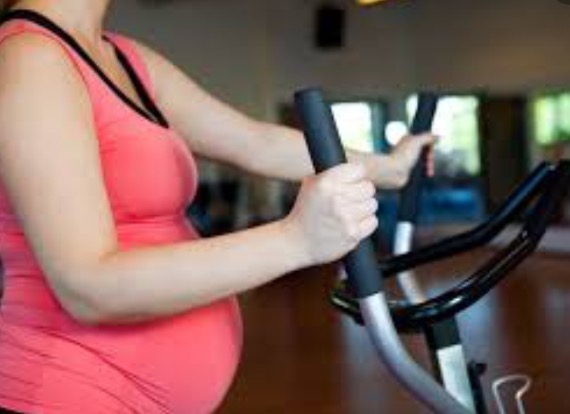On numerous occasions I have seen women still trying to push through a workout with their bump in tow and whilst I am a massive advocate for staying active during pregnancy I do feel it essential that regular exercisers adapt their normal training program to more of a maintenance mindset as well as introduce new activities that will be suitable for their growing shape and demands of pregnancy.
If you are a fit expectant mum then you know your body better than anyone yet I feel it important to be aware of why changes do need to be made.
Exercising whilst pregnant has a number of benefits including a healthier easier pregnancy, reduced aches and pains as well as positive mental endorphin release. It is not the time to kick start a brand new training program nor is it the time to start one if you have been sedentary for a while. Pregnancy is a time to look after yourself and nourish your baby whilst nurturing each phase of growth and adjusting to the developments that come with it.
If you are exercising regularly, here is what you need to know to ensure safety first for your bump and you.
- Wear a heart rate monitor and avoid raising your own heart rate above 140 beats per minute. When you are at rest and not exerting yourself your bump’s heart rate sits about 120-160 bpm and any raise in your heart rate and body temperature has a direct influence on raising theirs
- Avoid any sort of abdominal crunch move, especially after 8 weeks. Your abdominals are trying to stretch length ways and width ways during pregnancy to allow for growth of the baby so switch to static holds instead
- Avoid laying down on back after around the 17 week mark as this could interfere with the flow of blood and nutrients to the placenta of the developing baby as well as cause dizziness for mum
- Avoid high impact exercise as this puts undue pressure on the pelvic floor area which is already becoming stretched as the pelvis widens to prepare for labour
- Always ensure you can maintain a conversation whilst exercising and limit exercise sessions to 30 minutes max
As always, do ensure you have your midwife or GP’s approval to exercise and follow any advice you have been given specific to you by a professional


